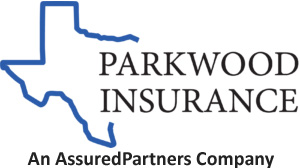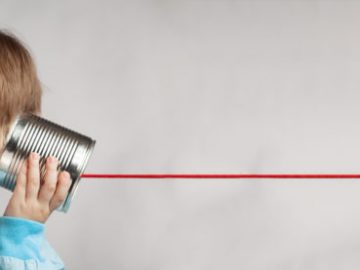Owning a home comes with some great advantages – room for the kids to play! Renovations! Block parties! But there’s also more work involved: changing air filters, maintaining landscaping, and of course dealing with your homeowners insurance.
Most Frisco homeowners know that they need to maintain homeowners insurance: it’s required by your mortgage company, and it protects what is most likely your biggest asset. But beyond that, it gets confusing. What kind of policy should you choose? What does a standard policy cover? And what extra coverage should you consider?
How Does Homeowners Insurance Work?
Homeowners insurance protects your family in two very important ways:
YOUR STUFF: Homeowners insurance provides financial protection for your home if the building or its contents are damaged. A standard policy generally covers the dwelling itself, other structures on the site (like a separate garage or work shed), and the home’s contents.
YOUR FINANCIAL FUTURE: The personal liability part of your homeowners insurance provides financial protection against certain lawsuits. It covers you against lawsuits for injury or property damage that you or your family members cause to other people, including damage caused by your pets.
This liability coverage in a standard homeowners policy pays for both the costs of defending you, and any damages you have to pay. And unlike the other types of coverage in your policy, you don’t have to pay a deductible on your liability insurance before your insurance company begins paying losses.
So when the unexpected happens, your policy is in place to cover the damages. And, with an independent insurance agent like Parkwood on your side, your life will be a little easier during a stressful time.
Am I Legally Required To Have Homeowners Insurance?
Homeowners insurance itself isn’t required by law, but it is required by your mortgage company (and your contract with your mortgage lender is enforceable by law).
Therefore, you have to maintain homeowners insurance until your house is paid off, although almost everyone continues to insure their home afterwards.
Kinds Of Homeowners Insurance
There are two types of homeowners insurance policies sold in Texas:
All-Risk Policies, also known as “comprehensive coverage” or “open perils coverage,” provide the broadest protection. They cover all causes of loss unless the policy specifically excludes them.
Named Perils Policies, also known as “specified perils coverage,” are more narrow. They cover only the causes of loss specifically named in the policy.
You will also need to choose between two different types of coverage:
Actual Cash Value (ACV) is what you would pay to rebuild or replace your property minus depreciation. If your home is destroyed and you only have actual cash value coverage, you may not be able to completely rebuild.
Replacement Cost Coverage (RCV) means that if your home is damaged or destroyed, you’ll receive the amount of money it would take to rebuild or repair it, based on construction costs in today’s market. This is different from the market value of your home, and doesn’t include the value of your land. Your insurance agent can help you calculate what it would cost to replace your home.
As you might expect, replacement cost coverage is the more popular option.
What’s Covered In A Standard Homeowners Policy?
Homeowners Insurance usually covers damages caused by certain “perils”:
- Storms, wind, and hail
- Lightning
- Theft and vandalism
- Falling objects
- (Some) water damage
Damage from earthquakes and floods is generally NOT covered by a standard policy. Mold damage is usually covered at a small amount or not covered at all. You can usually buy add-on policies to cover these events.
This is just what’s covered in a typical Frisco homeowners insurance policy, and your insurance may be different! Always be sure to check your policy paperwork to see exactly which perils are covered and which are excluded.
Dwelling Coverage
Your homeowners insurance policy will pay to repair or rebuild your home if it is damaged or destroyed by fire, hurricanes, hail, lighting, or the other perils covered by your policy. Most policies also cover detached structures (like a garage, tool shed, or gazebo), generally for about 10% of the amount of coverage you have on the home.
A standard homeowners policy will not pay for damaged caused by a flood, earthquake, or routine wear and tear.
There’s a simple way to decide how much coverage you need: buy enough coverage that you could rebuild your home if needed.
Personal Property Coverage
Personal property coverage pays to replace the contents of your home, like furniture, clothing, and appliances, if they are damaged, stolen, or destroyed. A standard homeowners insurance policy usually has limited coverage for certain expensive items, like antiques, collectibles, jewelry, and cash. You can increase coverage for those items by buying a “rider” on your homeowners insurance policy.
Loss Of Use Coverage
If your home is so badly damaged that you have to move out while it’s repaired or rebuilt, loss of use coverage helps cover your living expenses, including housing, food, and other essentials. Typically, a policy will pay a percentage of the amount of your dwelling coverage (usually 10 – 20%) or will pay for a specific time period after the loss.
Liability Insurance
What happens when a neighbor trips and falls on your property? You could have a lawsuit on your hands, and that’s where liability insurance comes in. It pays to defend you in court against lawsuits and provides coverage if you are found legally responsible for someone else’s injury or property damage.
Still have questions after reading? If you’d like some expert advice choosing the type or amount of coverage that’s right for you, just give us a call or shoot us an email! We’re always happy to speak with you about any concerns or questions you have.
Parkwood Insurance offers many kinds of home insurance policies, including homeowners insurance, renters insurance, landlord insurance, and condo insurance. Contact us today to get started with a personalized quote from the top insurance companies.




